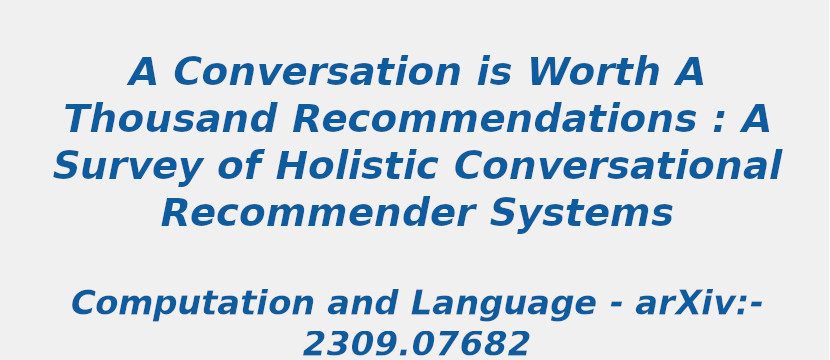Research Area: Machine Learning
Conversational recommender systems (CRS) generate recommendations through an interactive process. However, not all CRS approaches use human conversations as their source of interaction data; the majority of prior CRS work simulates interactions by exchanging entity-level information. As a result, claims of prior CRS work do not generalise to real-world settings where conversations take unexpected turns, or where conversational and intent understanding is not perfect. To tackle this challenge, the research community has started to examine holistic CRS, which are trained using conversational data collected from real-world scenarios. Despite their emergence, such holistic approaches are under-explored. We present a comprehensive survey of holistic CRS methods by summarizing the literature in a structured manner. Our survey recognises holistic CRS approaches as having three components: 1) a backbone language model, the optional use of 2) external knowledge, and/or 3) external guidance. We also give a detailed analysis of CRS datasets and evaluation methods in real application scenarios. We offer our insight as to the current challenges of holistic CRS and possible future trends.
Keywords:
Computation and Language
Information Retrieval
Conversational recommender systems
Human Conversations
CRS datasets
Author(s) Name: Chuang Li, Hengchang Hu, Yan Zhang, Min-Yen Kan, Haizhou Li
Journal name: Computation and Language
Conferrence name:
Publisher name: arXiv.2309.07682
DOI: 10.48550/arXiv.2309.07682
Volume Information:
Paper Link: https://arxiv.org/abs/2309.07682
